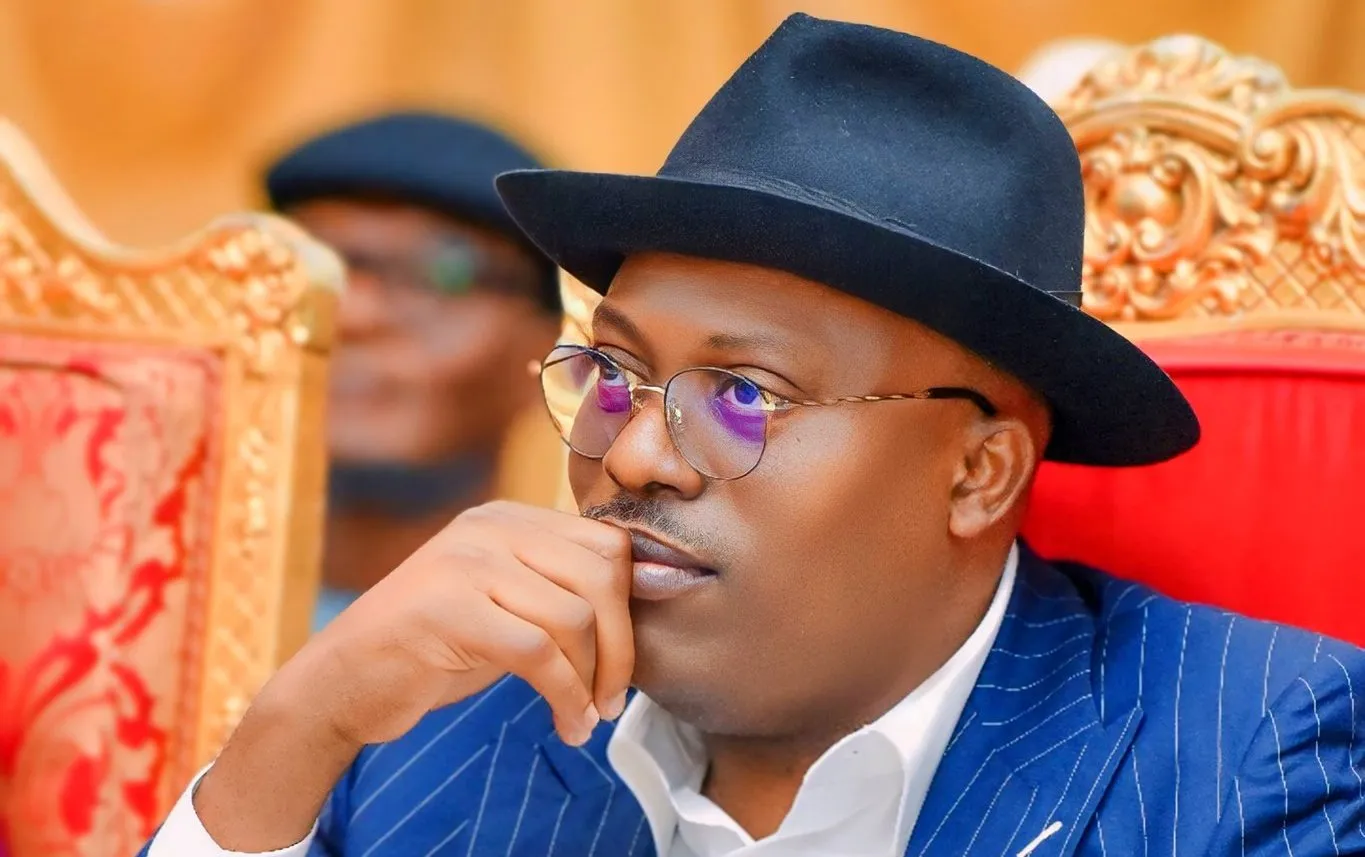Governor Siminalayi Fubara has officially regained full executive control of Rivers State following the handover by Sole Administrator, Rear Admiral Ibok-Ete Ibas (retd.), ending a six-month transitional arrangement that underscored the depth of the political crisis between Fubara and his predecessor, Minister of the Federal Capital Territory (FCT), Nyesom Wike.
Rear Admiral Ibas, a former Chief of Naval Staff, was appointed to oversee governance in the heat of the rift between the two powerful politicians, which erupted barely months after Fubara succeeded Wike in May 2023. His mandate was to ensure continuity, maintain stability, and keep the machinery of government running while the political feud simmered.
At the handover ceremony, Ibas stressed the need for unity and a return to focus on governance. “This is not just about transferring documents or authority, it is about transferring the trust of the Rivers people. I urge all stakeholders to rally behind the governor to ensure peace and development in the state,” he said.
Fubara, who described the moment as a reaffirmation of his electoral mandate, pledged to put the people first. “I have always said my loyalty is to Rivers State. This handover gives us an opportunity to reset and redirect our energy toward service delivery. We will focus on education, healthcare, infrastructure, and creating opportunities for our people,” the governor declared.
Background to the Rift
The crisis between Wike and Fubara began over control of the state’s political structure, with disagreements on appointments, legislative backing, and party loyalty. Wike, who handpicked Fubara as his successor, had hoped to maintain significant influence over Rivers politics after his tenure. However, cracks appeared when Fubara began asserting independence, a move Wike viewed as betrayal.
The feud quickly escalated, splitting the state assembly and prompting interventions from the presidency and the Peoples Democratic Party (PDP). Analysts say the appointment of Ibas as Sole Administrator was a compromise to prevent a total breakdown of governance, though it also reflected the intensity of the political impasse.
Consequences for Rivers Politics
Fubara’s return to full control is expected to reshape the state’s political terrain. On one hand, it strengthens his legitimacy as the elected governor and allows him to test the loyalty of lawmakers, commissioners, and party members. On the other, it could provoke further confrontation with Wike, who continues to wield influence in national politics through his position in President Bola Tinubu’s cabinet.
Observers warn that unless both leaders reach a truce, Rivers may remain locked in a cycle of instability that could undermine development projects and weaken the PDP ahead of 2027 elections. Some also fear that the state’s vital oil economy could be affected if political distractions overshadow governance.
For now, Fubara’s priority will be consolidating his grip on power while navigating the pressure from Wike’s loyalists. Whether this transition ushers in peace or deepens the crisis remains the central question for Rivers people.





